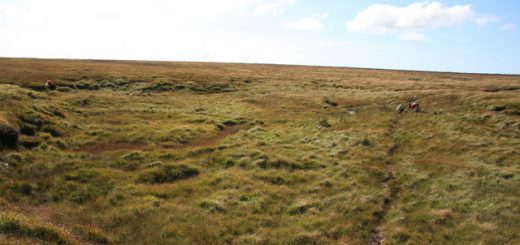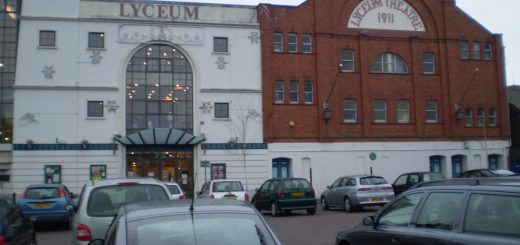Cortachy Castle
Cortachy Castle is large baronial manor built around a 15th century stronghold and is the hereditary seat of the Earls of Airlie. The lands were granted to Sir Walter Ogilvy by King James II in 1473 which is probably when the construction of this castle began, though there had been a an earlier castle of the Stewart Earls of Strathearn dating from 1330 on the site previously. During the 17th century the castle was severely damaged, first by Archibald Campbell, Marquis of Argyll when he attacked it in 1641, then Cromwell burnt it down in 1651 because Ogilvy had given shelter to King Charles II there. Argyll had also destroyed the earls other castles of Airlie and Forther in 1640 which gave rise to the song “The Bonny House of Airlie”. During the Jacobite Rebellion in 1745 the Ogilvy’s supported the Stuart monarchy again and had the castle, estates and titles seized by the Crown. The castle was eventually returned to the family before 1815 and the Earldom by 1826. During the remainder of the 19th century the castle was heavily renovated.
 Cortachy Castle and the Ogilvy family are said to be haunted by a drummer boy who was reputedly thrown to his death from the highest tower by one of the Earls. It is uncertain which of Earl of Airlie or indeed which century the legend pertains too, but the Earl in question killed the boy for either feeding information to his enemies or for having an affair with his wife. The last words the drummer boy said were a curse on the family. Since then the ghostly sounds of drumming have been an omen of impending death.
Cortachy Castle and the Ogilvy family are said to be haunted by a drummer boy who was reputedly thrown to his death from the highest tower by one of the Earls. It is uncertain which of Earl of Airlie or indeed which century the legend pertains too, but the Earl in question killed the boy for either feeding information to his enemies or for having an affair with his wife. The last words the drummer boy said were a curse on the family. Since then the ghostly sounds of drumming have been an omen of impending death.
There is a story that the drummer was heard by a Miss Dalrymple in December 1844 whist staying at Cortachy Castle. She had the story explained to her by a nervous Earl and Lady Airlie, emphasizing that the last time it was heard, a Lady Airlie had died. Miss Dalrymple fled the castle after hearing it a second time and Lady Airlie commited suicide within six months. If this is right the experience would have happened during the time of David Ogilvy, 9th Earl of Airlie (1785-1849).
A second account has the drumming foretell the death of David Ogilvy, 9th Earl of Airlie. The drummer was supposed to have been heard on 19 August 1849 by an Englishman visiting the castle. The 9th Earl died the following day and was succeeded by his son David Graham Drummond Ogilvy.
David Graham Drummond Ogilvy, 10th Earl of Airlie is said to have had his own death announced by the drummer which was supposedly heard by both Lady Dalkeith and Lady Skelmersdale one hour before he passed away in 1881.




Re: Cortachy Castle
The following is how the case appears in The Haunted Homes and Family Traditions of Great Britain By John Ingram (1897)
Of all the haunted castles in Great Britain, none, probably, has acquired a greater amount of notoriety than that of Cortachy Castle, the seat of the Earl of Airlie. This ancient stronghold is haunted by the spirit of a drummer, and whenever his drum is heard it may be accepted, according to the popular belief, as a token of the speedy death of a member of the Ogilvie family. The origin of this tradition is that either the drummer, or some officer whose emissary he was, had excited the jealousy of a former Lord Airlie, and that, in consequence, he was put to death by being thrust into his own drum, and flung from the window of the tower in which is situated the chamber where his music is, apparently, chiefly heard. It is said that he threatened to haunt the family if his life were taken; and he would appear to be as good, or rather as bad, as his word, the strain of his invisible drum having been heard several times even in the memory of living persons, and once, notoriously, quite recently.
The authoress who gives the following account of a somewhat recent occasion when the drummer was heard performing upon his ill-omened instrument, introduces it by the remark that about Christmas, 1844, a letter just received from a member of a distinguished Perthshire family was sent to her for perusal. The sender, an eminent literary man, accompanied the communication with the remark, "Read the enclosed; and we shall now have an opportunity of observing if any event follow the prognostic."
The information afforded by the letter was to the following effect:
"Miss Dalrymple, a relative of the present Lady C , who had been staying some time with the Earl and Countess at their seat, near Dundee, was invited to spend a few days at Cortachy Castle, with the Earl and Countess of Airlie. She went, and whilst she was dressing for dinner, the first evening of her arrival, she heard a strain of music under her window, which finally resolved itself into a well-defined sound of a drum. When her maid came upstairs, she made some inquiries about the drummer that was playing near the house, but the maid knew nothing on the subject. For the moment the circumstance passed from Miss Dalrymple’s mind; but recurring to her again during the dinner, she said, addressing Lord Airlie, ‘My Lord, who is your drummer?’ upon which his lordship turned pale, Lady Airlie looked distressed, and several of the company, who all heard the question, embarrassed; whilst the lady, perceiving that she had made some unpleasant allusion, although she knew not to what their feelings referred, fore bore further inquiry till she reached the drawing-room, when, having mentioned the circumstance again to a member of the family, she was answered, ‘What! Have you never heard of the drummer-boy?’ ‘ No,’ replied Miss Dalrymple, ‘who in the world is he?’ ‘Why,’ replied the other, ‘he is a person who goes about the house playing his drum whenever there is a death impending in the family. The last time he was heard was shortly before the death of the last Countess (the Earl’s former wife); and that is why Lord Airlie became so pale when you mentioned it. The drummer is a very unpleasant subject in this family, I assure you!’
"Miss Dalrymple was naturally much concerned, and indeed, not a little frightened at this explanation, and her alarm being augmented by hearing the sounds on the following day, she took her departure from Cortachy Castle, and returned to Lord C.’s, stopping on her way
to call on some friends, where she related this strange circumstance to the family through whom the information reached me.
"This affair was very generally known in the north, and we awaited the event with interest. The melancholy death of the Countess about five or six months afterwards, at Brighton, sadly verified the prognostic. I have heard that a paper was found on her desk after her death, declaring her conviction that the drum was for her; and it has been suggested, that probably the thing preyed upon her mind and caused the catastrophe; but in the first place, from the mode of her death, that does not appear to be the case; and, in the second, even if it were, the fact of the verification of the prognostic remains unaffected; besides which, those who insist upon taking refuge in this hypothesis, are bound to admit, that before people living in the world, like Lord and Lady Airlie, could attach so much importance to
the prognostic as to entail such fatal effects, they must have had very good reasons for believing in it."
The incidents just narrated took place, it will be recollected, in 1844. Five years later, or, to be more precise, on the evening of the 19th of August 1849, a young English gentleman was on his way to the Tulchan, a shooting-lodge belonging to the Earl of Airlie. He was mounted on a stout pony, having a stalwart Highlander for his guide across the wild Forfarshire moor.
For about two hours darkness had fallen upon the sceDes, that is to say, it was about half-past eight in the evening, when the welcome lights, issuing from the windows of the Tulchan, met our traveller’s anxious gaze. At the same moment a swell of faint music smote suddenly upon his ear. The sound was as that of a distant band accompanied by the drum, and appeared to emanate from the low ridge of ground below the hunting-lodge in front of him. As it was wafted in louder accents across the moor, he could not forbear from feeling that it had something of an eerie and unearthly character about it. Astonished at such an unaccountable occurrence in a spot where the Tulchan was the only house within many miles, and where bracken, brown heath, and morass stretched far and wide upon every side of him, the young man called the attention of his guide to the strange burst of music which he had just heard. Muttering that such sounds were "no canny," and professing that to him they were inaudible, the Highlander urged on his pony to as great a speed as the weary beast could exert after a journey of twenty-five miles, and in a little while the two riders drew rein at the hospitable door of the lodge.
Upon descending from his pony the Englishman learnt that his friend and host, Lord Ogilvie (afterwards tenth Earl of Airlie), had been summoned to London on account of his father’s dangerous illness. On the following day the ninth Earl of Airlie breathed his last in Regent Street, London, thus affording another testimony to the truth of the old tradition, that weird music and the sound of the drum haunt the dwellings of the Ogilvies prior to the death of a member of the family.